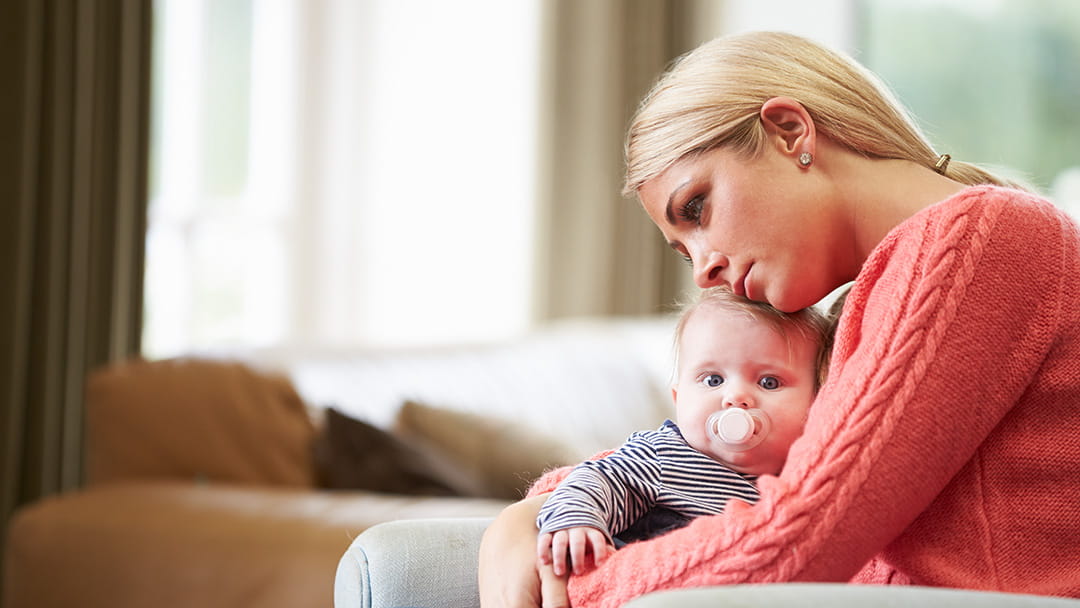
Youth are coping with excessive ranges of tension and melancholy. A brand new advisory from the Surgeon Basic warns that social media can pose a “profound danger of hurt” to youngsters and youths’ psychological well being.
Final yr, child-focused medical associations declared youngsters’s psychological well being a nationwide emergency. Earlier this yr, a panel of specialists – the U.S. Preventive Activity Pressure – really useful youngsters ages 8 to 18 to be screened for nervousness and melancholy, together with in any respect pediatric main care appointments.
Dad and mom want extra methods than ever to assist youngsters cope. Scientific psychologist Kimberly Burkhart, PhD, of College Hospitals Rainbow Infants & Kids’s Hospital, says social media ought to be an space to think about when figuring out methods to handle youngsters’s stress.
How Social Media Impacts Kids
“Age 12 and a half is the typical age that a teenager opens a social media account,” Dr. Burkhart says. “Analysis exhibits that the extra time spent on social media is related to elevated nervousness, melancholy, hopelessness, and isolation.”
Dad and mom typically don’t acknowledge the pressures related to social media.
“You’re hyperconnected and that creates a stress to reply rapidly, an expectation of others to reply rapidly, and to basically at all times be obtainable,” Dr. Burkhart says.
“As well as, there’s the stress to have good pictures, well-written posts, maintaining with others in a single’s social circle, and making comparisons to others associated to bodily look and recognition as measured by likes, mates or followers.”
Dr. Burkhart explains a number of the the explanation why spending extreme time on social media can have destructive results on social and emotional functioning:
- There may be much less time for face-to-face interplay. Consequently, there are fewer alternatives for direct constructive suggestions and for observe managing difficult social conditions, equivalent to battle, in-person and in actual time.
- Kids get much less observe studying nonverbal cues and adjusting conduct primarily based on the suggestions that’s being obtained.
- It damages self-confidence as a result of the kid isn’t seeing true representations of life, however quite created pictures that may distort perceptions of actuality.
- Extra time spent on-line will increase possibilities of cyberbullying.
Parenting Methods to Cut back Stress from Social Media
Dr. Burkhart presents these strategies:
- Hold strains of communication open. Work together with your youngster by creating wholesome boundaries by way of display time and varieties of social media. Talk about security associated to sustaining privateness and avoiding dangerous traits.
- Speak about what’s inside your consolation zone. Talk about floor guidelines together with your youngster about posting, liking others’ posts, how and which feedback ought to be ignored, and when individuals ought to be blocked.
- Set limits. For instance, telephones ought to be put away at mealtime; screens ought to be turned off previous to mattress.
- Implement good sleep habits. Screens impression the flexibility to get good high quality sleep. The substitute gentle arouses your mind and disrupts the manufacturing of melatonin to induce sleep. “Sleep deprivation is linked to elevated psychological well being signs, because it turns into more durable to course of difficult or upsetting conditions rationally and to interact in productive downside fixing,” Dr. Burkhart says.
- Use parental controls. Modify permissions and monitor accounts till your youngster is developmentally mature sufficient to make such selections.
- Mannequin constructive conduct. Be a task mannequin by placing your telephone down whenever you’re sharing time collectively. Whenever you disconnect, it additionally permits for elevated high quality time.
- Encourage face-to-face actions. This will increase a way of belonging, which serves as a protecting issue in opposition to destructive shallowness and melancholy.
How A lot Involvement Is Too A lot?
The time period “helicopter parenting” was coined to explain dad and mom who’re hyper-focused on their youngster’s actions, schoolwork and relationships in an try to spare them from experiencing ache and to assist them succeed.
This, too, can result in nervousness, says Dr. Burkhart.
“It could possibly result in being overly depending on dad and mom, elevated problem managing setbacks and a scarcity of alternative to construct problem-solving expertise,” she says.
Helicoptering does have some positives by way of maintaining youngsters on job, serving to them obtain their targets and fascinating them in constructive actions. However children have to discover ways to handle disappointments and ache, which fosters resiliency.
“Take heed to what your youngster wants, and have in mind your youngster’s social, emotional, and behavioral functioning to find out the best degree and kind of involvement,” Dr. Burkhart says.
“Proceed to speak. It’s essential to comply with the kid’s lead and to determine alternatives to foster ongoing constructive parent-child interplay.”







